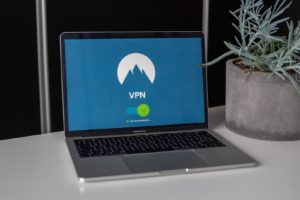T hese days who isn’t a target for identity thieves and other online scam artists? We are constantly bombarded with stories of large-scale data breaches, marketers tracking your every step online, and shady people exploring the photos you shared on social networks.
The way things are shaping up in the web world, digital security is all that matters now. Taking five simple steps outlined below will do more than just help you sleep better at night —it will also put you back in control of your digital life and give you peace of mind.
Use Secure And Strong Passwords
Passwords are crucial for protecting your private data. But if you use the same or weak passwords to protect your personal information or log in to your social media accounts, then you are endangering the security of several accounts. Cybercriminals can easily use bits of information they gather from multiple platforms to hack your passwords and steal your personal information.
So, don't let them put your privacy and identity at risk by creating strong and unique passwords for every account you have. Learn how to secure your data online with strong and unique passwords that are not easy to guess or crack.
Do you need to use passwords that are strong, unique, randomly generated, and hard to crack? It may sound like a tall order, but it is possible. Password manager simplifies the creation and storage of passwords. This software will assist you in generating strong passwords while keeping track of your credentials and avoiding damaging your online reputation.
Encryption
Data encryption is a process that securely converts original data into another form, which would make it nearly impossible to break the encryption and read the original content. This can add an extra layer of protection as you shop or bank online.
Before performing any type of online financial transaction, search for indicators that the site is secured. To do so, check for two things in the URL or web address bar: the trusted lock mark and the additional "s" at the end of HTTP.
Install Security Software
When you work on the computer, malicious programs might get their hands on your private information. Don't let this happen to you; instead, use security software to protect yourself.
Security programs are designed to protect your computer data and information from security threats. This includes viruses, spyware, worms, trojan horses, and other malicious programs. Security suites also have the functionality to help guard against identity theft. These protection suites include antivirus software that monitors incoming files and blocks them if they try to do something threatening or harmful.
Getting personal data protection is another technique to secure your digital presence and confidential material when sharing it online. Most security suites are designed to protect a specific type of data. Suites that offer private data protection goes above and beyond by protecting emails, private messenger programs, social media sites, and various blogs. Personal information is even harder to obtain with this type of protective suite.
Avoid Unsecured Wi-Fi
Walking into a coffee shop and logging into the free Wi-Fi? You'll be able to browse the web, but you're also broadcasting a lot of information that could be used against you. Public Wi-Fi doesn't encrypt data, so anyone on your Wi-Fi network can see what sites you're visiting and even intercept data sent over the web.
If a criminal has placed malicious software (malware) on one of the public computers, they could steal your username and password to sensitive sites like online banking. All this happens without you knowing it, so if you use a public Wi-Fi connection, be sure to encrypt all your communication using a VPN service.
Beware of Phishing Scams
In today’s day and age, it’s impossible to shield yourself from all online dangers. Phishing scams are prevalent throughout the web due to their success rate. Instead of worrying about phishing scams, do your best to educate yourself on how to identify them.
Never open emails or files from unknown senders or never click on unsafe links from unusual emails to prevent being prey to a phishing scam. Also, be wary of anybody offering money, weird employment possibilities, or requests for charitable donations since this might be a scheme to steal your private information.
Staying safe online is a skill that will likely benefit you for the rest of your life. The more you know about how to secure your data online, the more apt you'll be to keep your data out of harm's way. With a bit of know-how and common sense, you can avoid many threats and secure your data from cybercrime.














